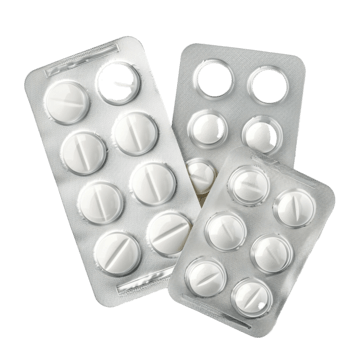Clonidine

Clonidine 0.1mg, 0.2mg, 0.3mg
Clonidine is a medication primarily used to treat high blood pressure by stimulating alpha-2 adrenergic receptors in the brain, which reduces sympathetic outflow and lowers heart rate and blood pressure. It is also utilized in the management of attention-deficit hyperactivity disorder (ADHD) and to alleviate withdrawal symptoms from opioids. Clonidine can help improve focus and decrease impulsivity in individuals with ADHD, while its calming effects may aid in managing acute withdrawal symptoms.
Order NowDescription
Clonidine is a centrally acting alpha-2 adrenergic agonist primarily used to treat high blood pressure. It may also be prescribed for attention deficit hyperactivity disorder (ADHD), anxiety disorders, and certain pain conditions. Clonidine works by stimulating alpha-2 receptors in the brain, which decreases the release of norepinephrine and leads to reduced sympathetic outflow, lowering blood pressure and heart rate.
Uses / Indications
- Hypertension (high blood pressure)
- Attention deficit hyperactivity disorder (ADHD)
- Management of opioid withdrawal symptoms
- Severe anxiety or panic disorders
- Tourette syndrome
- Chronic pain management in some cases
Dosage and Administration
Adults:
Initial dosage for hypertension: 0.1 mg to 0.3 mg orally twice daily, with gradual adjustments as needed.
Children (for ADHD):
Initial dosage for children aged 6 years and older: 0.1 mg orally at bedtime. Dosage may be adjusted based on tolerance and effectiveness.
Note: Dosage may vary based on medical condition, response, or doctor’s advice.
How It Works (Mechanism of Action)
Clonidine primarily acts on the central nervous system by stimulating alpha-2 adrenergic receptors, which inhibits the release of norepinephrine and reduces sympathetic nervous system activity. This action results in vasodilation and decreased heart rate, effectively lowering blood pressure.
Side Effects
Common side effects:
- Dry mouth
- Drowsiness or sedation
- Constipation
- Fatigue
Rare/serious side effects:
- Severe hypotension (low blood pressure)
- Bradycardia (slow heart rate)
- Severe allergic reactions (rash, swelling, difficulty breathing)
- Hallucinations (especially in children)
Seek medical attention if serious side effects occur.
Precautions / Warnings
- Inform your doctor if you have a history of heart disease or kidney problems
- Use caution when driving or operating machinery until you know how Clonidine affects you
- Do not abruptly stop the medication, as this may result in rebound hypertension; consult your healthcare provider for a tapering schedule.
Drug Interactions
May interact with:
- Other antihypertensive medications (could enhance blood pressure-lowering effects)
- Sedatives or central nervous system depressants (may increase sedation)
- Antidepressants, especially tricyclics (may affect blood pressure)
Always inform your healthcare provider about any other medications or supplements you’re taking.
Storage Instructions
- Store at room temperature (20°C–25°C / 68°F–77°F)
- Keep away from moisture, heat, and direct light
- Keep out of reach of children
Missed Dose / Overdose
Missed a dose?
Take it as soon as you remember. If it’s almost time for your next dose, skip the missed one. Do not double up.
Overdose symptoms:
- Extreme drowsiness
- Slow heart rate
- Low blood pressure symptoms (such as dizziness, fainting)
- Nausea and vomiting
Contact a poison control center or seek emergency medical help immediately.
Contraindications
- Allergic to Clonidine or similar medications
- Severe bradycardia or other significant heart conduction issues
Brand Names / Alternatives
- Catapres
- Catapres-TTS (transdermal patch)
- Kapvay (for ADHD)
- Generic name: Clonidine

